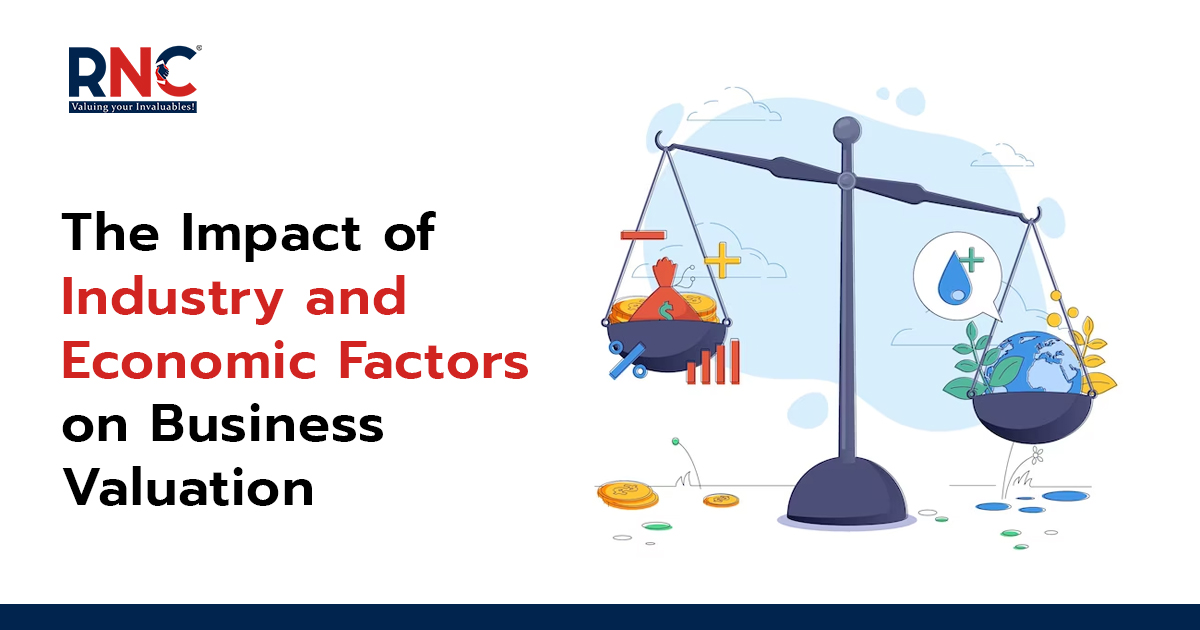
Business valuation is a critical process that determines the financial worth of a company. It involves assessing various factors that contribute to the company’s value, including industry dynamics and economic conditions. In this blog post, we will explore the significant impact of industry and economic factors on business valuation and highlight the importance of accurate valuations in making informed business decisions.
Read More: What Factors Are To Be Considered While Doing Business Valuation?
Industry Factors:
1. Market Demand and Trends:
The demand for products or services within an industry is a vital consideration in business valuation. Valuation professionals assess the current market demand and identify trends that can impact the future growth and profitability of a business. Understanding the market dynamics helps determine the value of a company accurately.
2. Competitive Landscape:
The level of competition in an industry affects a company’s market share, pricing power, and overall value. Business valuation services consider the competitive position of a company by analyzing factors such as market share, customer loyalty, and barriers to entry. A company with a strong competitive advantage is likely to have a higher valuation.
3. Regulatory Environment:
Industries are subject to specific regulations and compliance requirements. Changes in regulations can impact a company’s operations, profitability, and risk exposure. Valuation experts consider the regulatory landscape to assess the potential risks and opportunities associated with a business, which can significantly affect its valuation.
Read : How Business Valuation Measures Economic Damages
Economic Factors:
1. GDP and Economic Growth:
The overall state of the economy and its growth rate have a direct impact on business valuations. During periods of economic expansion, businesses tend to perform better, leading to higher valuations. Conversely, economic downturns can negatively affect business valuations due to reduced consumer spending and lower corporate profits.
2. Interest Rates:
Interest rates affect the cost of capital and future cash flows, thereby influencing business valuations. Lower interest rates generally lead to higher valuations as the cost of borrowing decreases, making investment in a business more attractive. On the other hand, higher interest rates can lower a company’s value.
3. Inflation and Deflation:
Changes in price levels due to inflation or deflation can impact business valuations. Inflation erodes purchasing power, potentially affecting a company’s future cash flows and profitability. Valuation professionals consider inflationary or deflationary expectations when assessing a company’s value to ensure accuracy.
Conclusion:
Accurate business valuation is essential for various purposes, such as mergers and acquisitions, financial reporting, and strategic decision-making. The valuation process takes into account industry-specific factors and economic conditions that can significantly impact a company’s worth. Understanding market demand, industry trends, competitive landscape, regulatory environment, GDP growth, interest rates, and inflation is crucial in determining the value of a business.
To ensure accurate business valuations, it is advisable to seek the services of experienced professionals who possess a deep understanding of industry and economic factors.
Read Similar topics: Top 8 Situations Where Business Valuation is Needed
